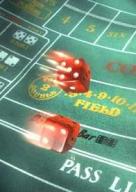
A gambling addict in Ontario has recently launched a $3.5 billion lawsuit
against the Ontario Lottery and Gambling Corporation (OLG) for failing to stop
him for gambling, which had caused him his fortune and his family. In the
lawsuit, the gambler argues that OLG allowed him to keep gambling even though he
had authorized them through a self-exclusion program to stop him from entering
casinos. This lawsuit has revealed a growing concern in gambling addiction and
that it affects thousands of people, yet it also shows an interesting twist in
the sense of responsibility (or lack of).
Since gambling has become legalized in Ontario, it has become a very lucrative
business for the government. The OLG has marketed gambling as fun, and put
solely the responsibility to the gamblers to control themselves. Meanwhile,
problem gamblers think that through a self-exclusion program, they can totally
disown their responsibility in dealing with their addiction, and depend on
others to stop them.
In ancient Greece, when people did not see that they could control their own
destiny, when they did not see the cause and effects of their own actions, they
resorted to worship Tyche, the goddess of luck and fortune, hoping to get her
favour, and that random chance will make their life better, somehow.
Interestingly, study shows that people with gambling difficulties also cite
emotional problems of loneliness and depression, as well as financial and
spousal problems. Somehow, they are using gambling as a means to resolve (or
escape) their problems.
So we have citizens hoping that luck will help them out of their problems, and a
government that is taking advantage of the fragility of her citizens. Nobody
wants to take any responsibilities. It is very far from Plato’s ideal state
where a government inspires and elevates her citizens to reach the best of
themselves and individuals can blossom as a human being.
Wisdom traditions are teaching us that change comes from taking responsibility
of a situation, and that we can build our own destiny through intelligent
action. At the moment of crisis and crossroads, we need to call upon the best
and ethical of ourselves to build a new and better world, not luck’s favour; be
actors, not spectators.